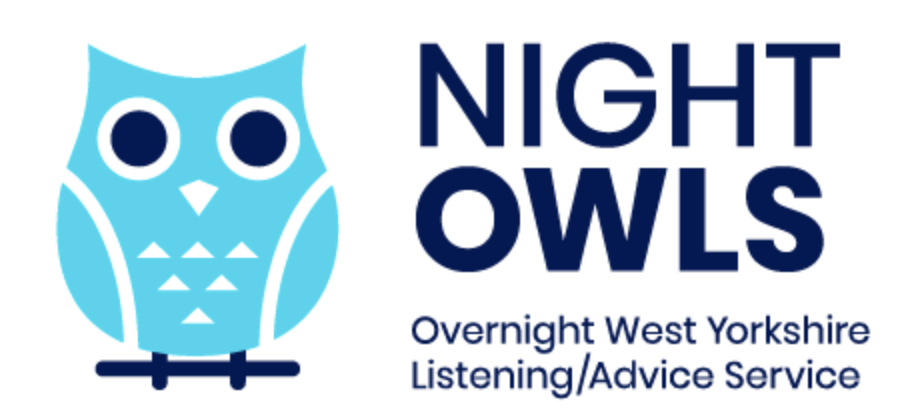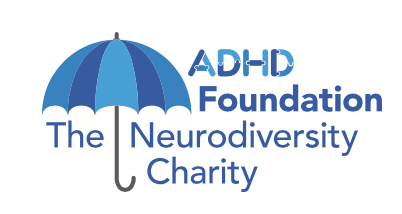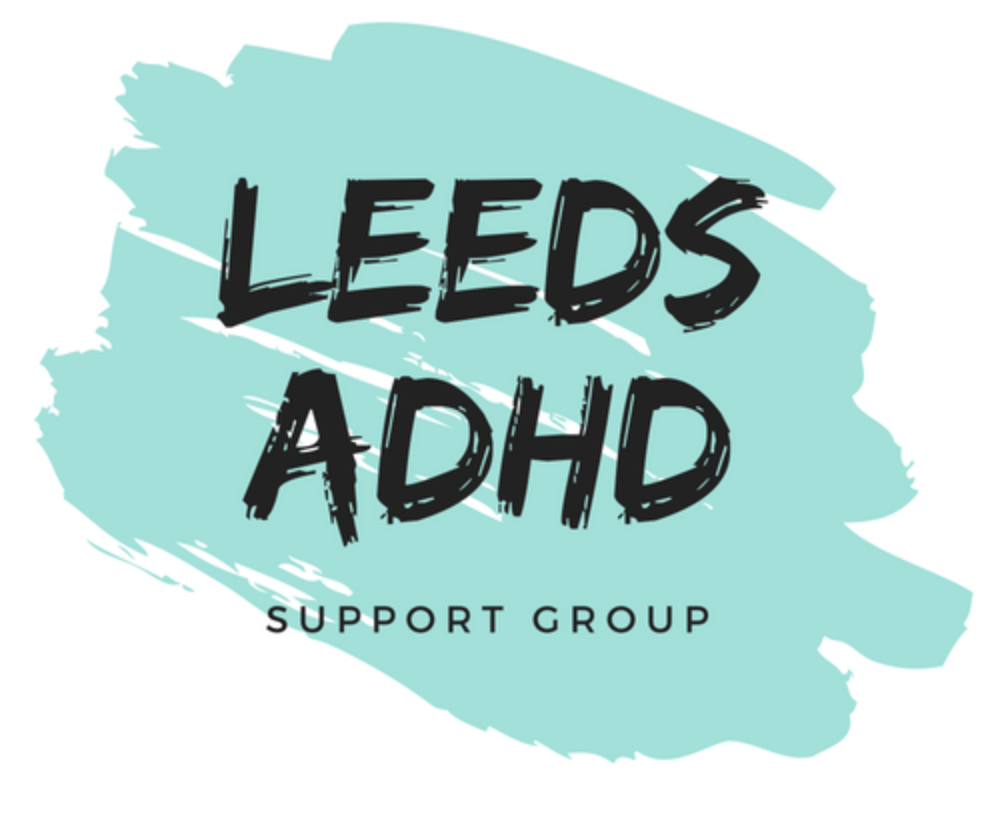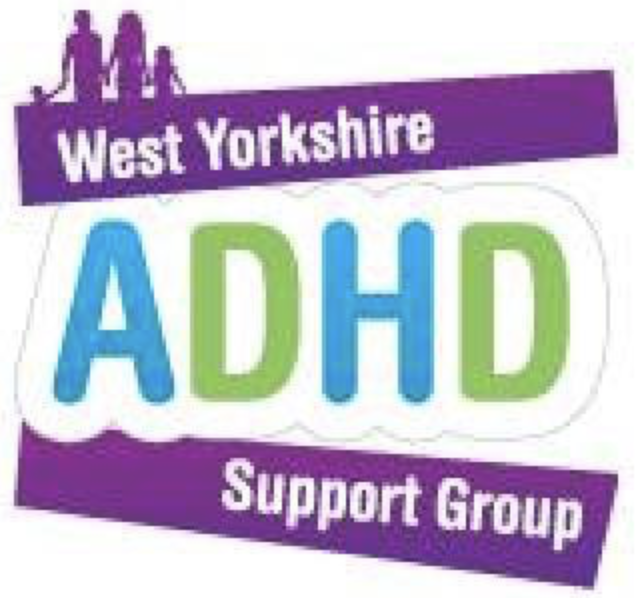ADHD for Young People
ADHD stands for Attention Deficit Hyperactivity Disorder. It is a neurodevelopmental condition, that means your brain works slightly differently. It is one of a group of differences called neurodiversity.
If you have ADHD then your behaviour may be affected by:
- problems paying attention
- hyperactivity
- impulsivity
Many young people struggle to pay attention and are restless some of the time. This does not necessarily mean they have ADHD.
You may have ADHD if your inattention or hyperactivity is much worse compared with others your age, and if it is affecting your studies, friendships and home life.
The video below was written by the Healthy Minds Apprentice team 2022 to 2023 who wanted to share their own lived experience of autism and neurodivergence in the hope of spreading awareness across West Yorkshire and beyond.
Symptoms
Not all young people with ADHD have all of the symptoms. Below are some things you may find challenging.
1. Problems paying attention (inattentive)
- others think you are forgetful
- you are easily distracted, for example by a door banging
- you find it more difficult than others your age to concentrate
- you have difficulty organising yourself, for example getting out the door in the mornings
- you have difficulty listening, for example focusing on what your teacher is saying or struggling to follow instructions
2. Problems sitting still (hyperactivity)
- you feel restless and fidgety
- you are full of energy, and always on the go
3. Problems controlling impulses (impulsivity)
- you do things without thinking
- you struggle to wait your turn, for example in a game or in a queue
Each of these challenges can also be one of your strengths. For example, being hyperactive may also mean that you are energetic and enthusiastic.
Think about your strengths
ADHD can come with lots of challenges but can also be a positive thing. Some young people with ADHD find they are good at one or more of these things:
- being creative
- problem solving and quick thinking
- being determined and hard working
- being sporty
People with ADHD can be just as talented as those without ADHD. In fact, some of the world’s most famous people have diagnoses of ADHD including; Justin Timberlake (singer), Jamie Oliver (chef), Will Smith (actor), Simone Biles (Olympic gymnast), Emma Watson (actress) and Richard Branson (entrepreneur and owner of the Virgin brand) to name just a few!
Diagnosis
There is no simple test for ADHD. A diagnosis is when a professional officially confirms you have ADHD. This is made by recognising patterns of behaviour.
- Symptoms should be present for at least 6 months
- Symptoms must be seen in at least 2 places, such as at home, school or clubs
- Other problems should be ruled out first, for example hearing problems
- If symptoms are mild then you might not need a formal diagnosis. Often people can manage using self help tips such as those below and with extra support.
Where to start?
- Speak to your teacher or your school's Special Educational Needs Coordinator (SENCO). Even if your problems are not obvious at school, this is still the best place to seek early support.
- You can also speak to your School Nurse (0 to 19 service) or GP.
- Strengths and Difficulties Questionnaires (SDQ) for different age groups can be found as PDF files on www.sdqinfo.org. They are sometimes used as part of ADHD assessments.
- Waiting times for an ADHD assessment can be long. While you are on the waiting list, you can still get support. Most groups will support you even if you do not have a formal diagnosis.
ADHD assessment in your area
Each area is different. Your school or GP can refer you for an assessment.
For more information on what to expect from an ADHD assessment, see this easy read document.
Self Help Top Tips
- Good sleep routine. Young people with ADHD often struggle with their sleep. This can cause problems concentrating at school. Visit the Teen Sleep Hub for more advice.
- Eat a balanced diet
- Regular exercise
- Tell your family, teachers and friends that you need simple instructions. One thing at a time.
- Ask for and take breaks
- Keep a simple routine. If you know what you are doing every day, this helps to keep organised.
- Learn about ADHD. Talk to your friends and family about ADHD. Try to focus on the positives of having ADHD and highlight your strengths to others.
- Talk to your friends so that they can understand why you behave in certain ways sometimes.
Practical Advice
Try picking one or two things from the list below. You could ask a friend or family member to help you.
Being impulsive
Impulsivity is like not being able to press a ‘pause’ button. For example, not being able to stop speaking, or doing things without thinking through the possible consequences.
Being impulsive can be useful, as well as problematic. Following an idea without thinking can sometimes work out well. It can also make planning to do something that needs to be done difficult or increase dangerous risks for example, speeding in a car.
I find it difficult to:
Not say the first thing that comes into my head.
I can try to...
- let others know that I find this difficult
- prepare for particular situations or conversations (talk it through with someone I trust)
- practice self talk, tell yourself “Stop, Think”
Wait my turn (and can lose my temper)
I can try to...
- Use something to distract me, for example, a phone or fidget
- Really focus on something I can see. Think about what it looks, feels, smells and sounds like, to distract me
Stop buying things I can’t afford
- Don’t shop when hungry or tired
- Note to self on laptop or phone, for example “STOP! Before I buy, do I need this? Can I afford it?”
Top Tips to help with impulsiveness from people who find this difficult
- Have a distraction tool (such as a fidget toy). Especially useful in situations such as assemblies.
- A fidget toy or object can be a pen top, a key ring, lump of blue tac, a bracelet or wrist band or an elastic band. Something that you can keep in your pocket for when you need it.
- Exercise such as fast walking or running. Every day at the start of the day and outside if possible.
- Talk to someone you trust about what you think, do or say. This helps them know what is difficult for you.
- Try to wait 24 hours before making a big decision and then see how you feel. Remember to tell yourself to “stop” and ask yourself “why am I doing this?”
Time management & organisation
Young people with ADHD often find managing time and being organised challenging. It can be difficult to be aware of how much time is passing and how long activities will take. It can be easy to be distracted by anything that is going on around you, such as other people talking, the phone ringing or getting lost in day dreaming.
I find it difficult to:
Remember and be on time for things like school or clubs
I can try this...
- Put a calendar on the wall or on my mobile phone (check it every evening for the next day)
- Set an alarm on my mobile phone to remind me when to get ready, and when to leave house
- Ask someone to contact me with a reminder
Keep on top of homework
I can try this...
- Have set days and times every week when I ‘have’ to go through my work for each subject. Put it on my calendar
- Try colour coding things or filing them in trays or folders
Get things you need to do done on time
I can try this...
- Break down big tasks to achievable, small steps and write a list of small steps
- Review lists every day and highlight in colour one thing that I ‘have’ to get done that day
- Learn to say, “I’ll get back to you” and set reminder to do that. Then think it through to see if I have time to do it before agreeing to taking on another task.
Top Tips for managing time and being organised from other people who find this difficult:
- When getting ready to go out, time yourself with songs, for example I have to be dressed by end of this song.
- Plan ahead the day before an appointment or needing to be somewhere. Count time backwards from appointments in detail to know when to set off. Check how long your journey will take, for example times of buses. Add 10 minutes and take something with you to do if you arrive early. Remember arriving early is OK.
- Set alarms on your phone to remind you to do something or leave house now.
- Have set places at home where you keep things such as keys
- Be aware of saying or thinking “I will ‘just’ do something” because you think you have time to do it. Stop and ask yourself, “Is this what I need to do now and do I have enough time to do this now?”
- Sync your emails and calendar on your phone.
- Have a notebook to write daily to do lists (or have a to do list on your phone) and look back at previous days and months.
- Wear a watch and use it to keep yourself aware of the time.
Anxiety and mood
Sometimes, people with ADHD can feel worried and anxious. A history of saying the wrong thing, blurting out opinions or being punished for interrupting or physical restlessness, can lead some young people with ADHD to feel anxious and even avoid people or certain situations.
Low mood can appear in many forms and affect young people with ADHD in many different ways. Some people are low in energy and enthusiasm and feel that life is difficult or even not worth living. Others can feel on edge or even aggressive and still feel down and feel little hope for themselves.
Many factors in a person with ADHD’s life can lead to them feeling sad or worried. Difficulties at school, trouble managing impulses, making and keeping friends, struggling with poor memory or attention, can all make people feel very sad and depressed. Poor concentration, disorganisation, sleep disturbances, and restlessness can all contribute to depression.
There is also evidence that some people with ADHD can find it difficult to control their emotions, or experience sudden and extreme swings in their emotions. For example, being extremely happy one moment to being extremely sad or angry in the next moment.
If you are feeling like this now please visit our pages on anxiety and depression now for advice on how to get help. If you are planning to harm yourself visit our page 'Help, I'm in Crisis'.
 West Yorkshire Night OWLS is available 8pm to 8am every day for children, young people, parents and carers across West Yorkshire. Call free on 0800 1488 244 or text on 07984 392700
West Yorkshire Night OWLS is available 8pm to 8am every day for children, young people, parents and carers across West Yorkshire. Call free on 0800 1488 244 or text on 07984 392700
 Call Childline free on 0800 1111
Call Childline free on 0800 1111
![]() Don't want to talk? Text YM to 85258, the Young Minds Crisis Messenger for free 24 hours a day, 7 days a week support.
Don't want to talk? Text YM to 85258, the Young Minds Crisis Messenger for free 24 hours a day, 7 days a week support.
☎︎ Contact your GP or call NHS 111
The most important thing to remember is that you can do something about it. Don’t assume this is just the way it’s going to be.
I find it difficult to:
Calm down
I can try this...
- Use relaxed breathing exercises. Follow these suggestions:
- Breathe from the belly
- Breathe in slowly, but out more slowly
- Keep doing this for 2 minutes
- Distract myself using the “5,4,3,2,1” trick
- Identify 5 things I can see and describe them in detail
- 4 things I can touch, and how they feel
- 3 things I can hear, and what makes the sound
- 2 things I can smell
- 1 thing I could taste
Be positive
I can try this...
- Talk to people I know and trust
- Stay active. Exercise is a powerful way to improve your mood
- Do the things you enjoy, but don’t overdo them
- Challenge your thoughts. Would someone else you know have a different way of looking at things?
Attention and remembering
Being able to pay attention or concentrate is a key challenge for a young person with ADHD. It can be frustrating and difficult.
I find it difficult to:
Concentrate on a task for a long time
I can try this...
- Put on some music without lyrics
- Place cards saying ‘Focus!’ in different places to help me stay focused on a task
- Use alarms to tell me when to finish a task and when to start another one (for example when to have a break)
- Try to make a list of what I will be working on. What are the most important things I need to get done today?
See all the detail in text, I often miss things
I can try this...
- Use bright colours to attract attention to important information (such as highlighters or post it notes)
Avoid distractions
I can try this...
- Remove posters or pictures that distract me
- Switch screens off if possible to improve concentration, or move somewhere not so noisy
- Use earplugs
Remember information
I can try this...
- Write things down on a notepad or a mobile phone
- Let my teachers, friends and family know that I struggle with my attention
Top Tips to help you manage your attention and memory better from people who have similar difficulties:
- Speak your task out loud to help you stay focused.
- Have an item you can fidget or play with (such as a stress ball).
- Keep things in the same place at home and school.
- Put things in places that will help you remember, such as on the floor in front of the door so you have to step on them to leave the house.
- Baskets and plastic boxes can help you stay organised.
- Take photos of appointment cards or important information on your phone so you can refer to it later if you need it.
- Pack a bag for the next day the night before. Plan your day ahead and take time to prepare.
Frustration and anger
Frustration and anger are common in young people with ADHD. These emotions can have negative effects on your life if not carefully managed. Having an argument at school can get you in trouble. Arguing with your friends can effect your relationship with them and make you feel alone and angry with yourself. Sometimes, these outbursts are because this is the only way you know to express an emotion.
It is important to try to understand why we become angry. What are my triggers? What makes it better? What makes it worse? Visit our page on anger for more advice.
I find it difficult to:
Control my temper
I can try this...
- Recognise the signs. Am I clenching my fists? Grinding my teeth or getting tense? If I am, it’s time to take a slow breath out
- Use relaxed breathing when I start to get wound up.
- Follow these suggestions:
- Breathe from the belly
- Breathe in slowly, but out more slowly
- Keep doing this for 2 minutes
Avoid arguments
I can try this...
- Agree a code word with important people that tells them when I need to step back from an argument
- Ask myself, “What do I want from this discussion?”
Express myself when I’m angry or frustrated
- Ask people to give me a minute to think
- Use “I feel...” to start a sentence
Top Tips for managing your anger and frustration better:
- Try doing exercise and distracting yourself from the situation that is making you angry.
- Try some relaxation and breathing exercises or listening to soothing music.
- Tell yourself that sometimes others are helping, not just trying to wind you up.
- Sometimes, anger in ADHD can be positive as well, as it can be a motivator to achieve things.
- It’s OK to take a break and walk away to try and figure out your feelings.
- Agree with your family, teachers or friends how you would like them to help you when you get angry. Have a plan.
- Stop when the argument is going nowhere. No need to get the last word.
It is important that you learn to recognise changes in your body and behaviours which are early warning signs for anger.
Problem solving
Difficulties with solving problems can be present in many young people with ADHD. You may struggle to recognise that a problem is approaching, or act impulsively rather than think through possible solutions. You may find yourself worrying about more immediate or minor issues, instead of seeing the overall problem.
Difficulties with attention, memory, impulse control and inhibition can make problem solving harder for people with ADHD. Feeling very angry, anxious or low in mood can also make it harder to come up with a range of solutions to any possible difficulty.
What is a problem?
A problem is anything that gets in the way of you achieving your goals.
What can I do?
Problem solving can be made easier by following some basic rules. Following these can help to reduce impulsive responses, reduce frustration and increase your chances of success.
1. Identify the goal. What do I want to achieve?
2. Identify the main problem. What’s getting in the way?
3. Develop solutions. How can I tackle this?
4. Pick one. Which is my best option?
5. Do it!
Top Tips for problem solving from other people who find this difficult:
- Talk through a task out loud to keep you focused and know what you need to do next.
- Young people with ADHD can be very creative. Use this strength here to help you come up with many possible solutions. The difficulty may be choosing one option and sticking to it.
- You may find it difficult to see the end picture and want things to be sorted now. Some things may take time and you may need to stick with what you are doing to see an improvement. Don’t give up.
- Make sure you find a quiet area where you can concentrate and really think through a problem and possible solutions.
- Be in the right head space. Take breaks often.
- Be aware of a tendency to focus on the small details and miss the bigger picture altogether. Maybe discuss your problem with a close friend or family member and go through the steps and solutions together.
Sleep
It is important for young people with ADHD to get enough sleep to help them cope with everyday life. Falling asleep and managing bed time routines can be difficult.
Visit the Teen Sleep Hub
I find it difficult to:
Go to sleep
I can try this...
- Have a bed time routine
- Have time to relax after having a shower or bath and getting ready for bed
- Avoid caffeine or heavy meals just before bedtime
Wake up and get out of bed in the morning
I can try this...
- Use an alarm clock. Place it somewhere where I have to get out of bed to switch it off
- Put a bedside light on a timer or ask a parent to open the curtains just before the time I need to get up
Stay alert during the day and feel sleepy
I can try this...
- Exercise, for example go for a walk when feeling tired during day rather than taking a nap
- Drink water regularly during the day
- Get up and move around rather than sitting for a long time
Top Tips for getting enough sleep from other people who find this difficult:
Having a good bedtime routine:
- Set an alarm (at set time such as 8.30pm) to remind yourself to turn screens off
- Turn lights off when watching TV or use a dimmer on the TV to gradually reduce the amount of light you are exposed to before going to bed
- Relaxing routines such as reading, mindfulness and lavender oil
- Breathing. Count 5 in and 6 out.
- Practice ‘letting go’ of the day’s worries. You can use a notebook to write down worries
- Exercise during the day
- Get a friend or family member to do this with you to help with your motivation.
- Room should be dark. Use black out blinds or an eye mask.

For further support on sleep, visit the Your Choice Your Way resources. You can find booklets, videos, and audio resources packed with information, hints, and tips to guide you. Everything has been researched, suggested, and co-produced by young people.
Social skills and relationships
People learn how to be sociable by watching others and practicing with friends and family. This can be harder for young people with ADHD as they struggle to concentrate and focus. They often do not see subtle social messages that others take for granted. This lasts into adulthood, though most people get a bit better at this.
It is common for young people with ADHD to find social skills and relationships a challenge.
I find it difficult to:
Keep track of conversations in groups
I can try this...
- Be honest. Tell people when I haven’t followed everything
- Avoid busy environments where there’s lots of distractions if I want to talk about something important
Keep promises
I can try this...
- Write down anything important, or make a recording on my phone of dates and times of arrangements
Keep relationships going
I can try this...
- If I’m worried about this, talk to the person
- Ask people what they need from me, and be honest about what I can give
Top Tips to help you manage your relationships and improve your social skills from other people who find this difficult:
- I find small talk difficult. Have a stock of general interest items for continuing the flow of conversation.
- Learn from others and discuss with a close friend or family member what the best ‘rules’ of social interaction are.
- Tell people you have ADHD and help them understand what this means.
- Remember to make eye contact with others.
- Take small breaks from conversation.
- Remind myself not to interrupt, try and be aware of doing it.
School and studying
Young people with ADHD can have lots of good ideas and energy and can get on well with other people at school or college. They can find it difficult to get work done, especially on time and may find it difficult to work with others. There are ideas and things that can help.
I find it difficult to:
Concentrate when studying especially when it is busy and noisy
I can try this...
- Use ear plugs to block out noise, to play music or background noise
- Exercise such as fast walking or running. Every day at the start of the day and outside if possible
- Speak to my teacher or tutor to arrange to study in a quiet space
Keep on top of workload
I can try this...
- Write a ‘to do’ list for each day. Use ‘post-it’ notes on my computer screen or a whiteboard to write myself notes. Use different colours and take off notes when done.
- Break down big things to do into small goals. Write down in a set notebook and tick off as I achieve them.
Complete homework
I can try this...
- Reward myself with regular breaks every 30 to 45 minutes to stop and move for 5 to 10 minutes
- Try using Information Technology (IT) to help such speech to text software, spell checks, predictive text. Speak with my teacher about what they can offer to help.
- Drink lots of water from a bottle with a sports cap
- Eat healthy crunchy snacks such as apples, carrot sticks, and (outside of school) try chewing gum
Top Tips to help with studying from other people who find this difficult:
- Have a set workplace such as a desk and chair for study only.
- Don’t try to do everything at once.
- Always keep a clearly labelled notebook with you to write down everything that you need to remember or that people ask you to do.
- Try a ‘Study Buddy’. Someone to tell what you are going to do and agree a time to check back in.
- Tell people you trust at school and make them aware of your ADHD so they understand what you find difficult.
- Put to do lists or topic areas of study up on the wall. Use colours to separate topics.
- Limit time on social media.
- Give yourself a whole day away from games.
- Short chunks and short term goals so you can congratulate yourself for all the good stuff you have done rather than worry about what still has to be done.
- Limit your phone and screen time
- Remember that you are always aiming for a balance
Acknowledgement: Thanks to NHS Lothian Adult ADHD and ASD Resource Team for allowing us to use their Resource Pack developed in collaboration with service users.
What does ADHD mean for me in the long term?
We used to think that ADHD disappears as children grow up. We now know that this is not always the case. Some problems, like hyperactivity, do get less with age. As people mature, many find their own way of managing the problems (like taking part in sports). Sometimes, other problems develop, like taking risks, trouble keeping a job or a steady relationship, managing to keep appointments, pay bills on time or regulating your mood.
However, all of these problems can improve, which is why it is important to get the right help now.
Further information
 ADHD Foundation and read their Teenager's Guide to ADHD
ADHD Foundation and read their Teenager's Guide to ADHD
![]() ADDitude provides guidance and support for living better with ADHD and its related mental health conditions.
ADDitude provides guidance and support for living better with ADHD and its related mental health conditions.
![]() Young Minds Young person’s guide to ADHD and mental health
Young Minds Young person’s guide to ADHD and mental health
Get Help and Support
Visit our Support for neurodivergent children and their families page for a full list of support available
Visit our Mental Health pages if you are struggling with your mood or wellbeing
West Yorkshire ADHD Support
![]() Visit Leeds Mindmate Neurodiversity Information Hub
Visit Leeds Mindmate Neurodiversity Information Hub
 Leeds ADHD Facebook Support Group and website. A peer support group for adults and young people with ADHD, their families. Join their monthly in person meeting or zoom meeting.
Leeds ADHD Facebook Support Group and website. A peer support group for adults and young people with ADHD, their families. Join their monthly in person meeting or zoom meeting.
 West Yorkshire ADHD Support Group. A peer led voluntary support group offering a wide range of support to both adults and parents or carers of children with ADHD. Email support
West Yorkshire ADHD Support Group. A peer led voluntary support group offering a wide range of support to both adults and parents or carers of children with ADHD. Email support



